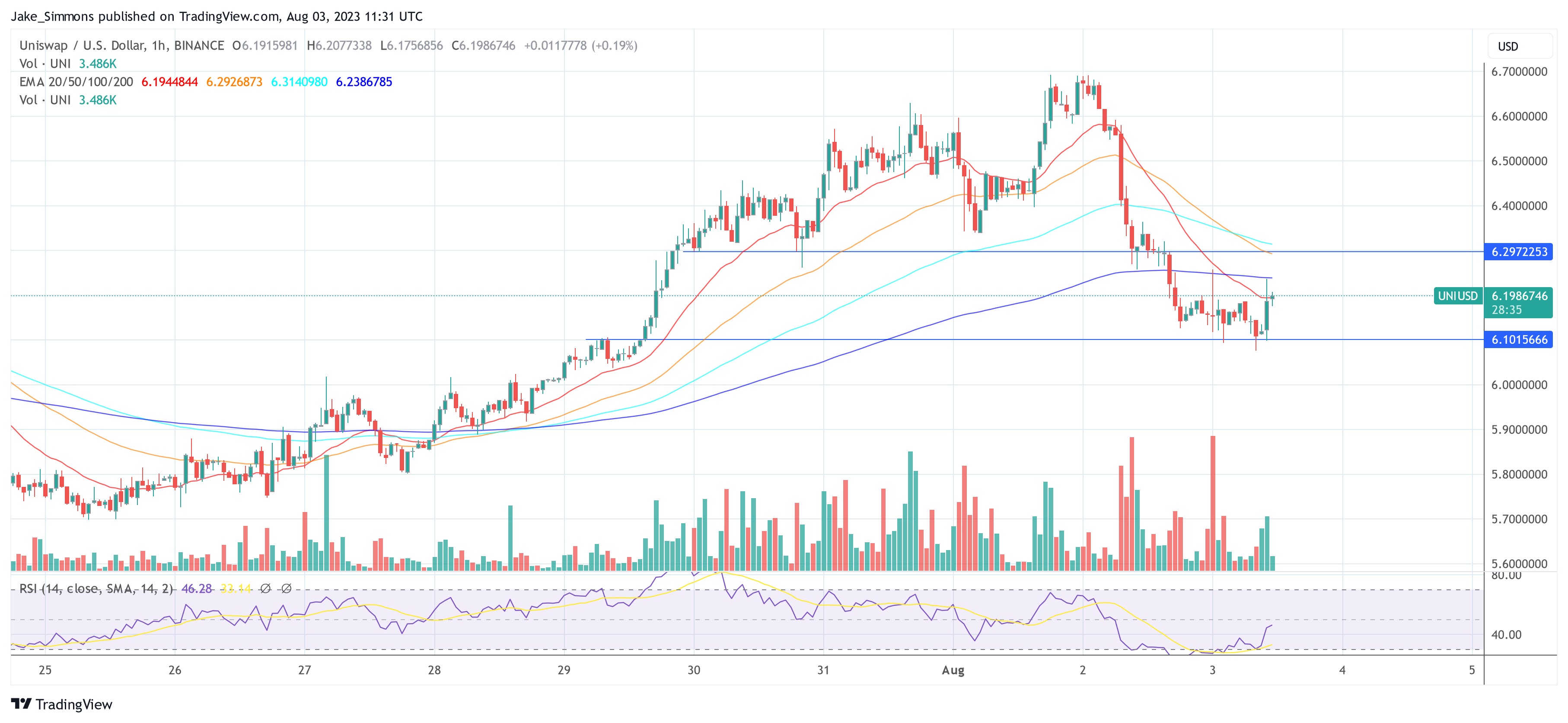In an analysis, Anders Helseth, Vice President at K33 Research study, has actually installed a strong case versus the practicality of the Uniswap (UNI) token. His analysis rotates on the interesting characteristics of the decentralized financing (DeFi) market, essentially challenging the existing appraisal and future capacity of UNI.
Helseth starts his argument with an apparently simple concern: “The Uniswap procedure creates substantial trading charges, however will the UNI token ever catch its (reasonable) share?” His conclusion is absolutely unfavorable.
Is The Uniswap (UNI) Token Useless?
For context, UNI is a governance token for the Uniswap procedure, a decentralized exchange that makes a 0.3% charge on trades. Nevertheless, as Helseth explains, the whole trading charge presently goes to liquidity companies, with UNI holders standing to acquire just if governance votes allow charge dividends to UNI holders.
Even in a sluggish DeFi market, the totally watered down worth of the UNI token is 15 times the annualized trading charges paid when utilizing the procedure, presently around $6 billion. If the UNI token might catch all trading charges, it would probably provide an alluring buy. Nevertheless, Helseth makes an engaging argument to the contrary.
” The UNI token presently records 0% of the 0.3% trading charge, which totally goes to liquidity companies,” Helseth states, stressing the token’s existing absence of intrinsic worth.
The core of his argument focuses on 3 gamers in the DeFi area: the users, the procedure (and thus UNI token), and the liquidity companies. According to Helseth, the interaction in between these stars is harmful to the UNI token’s capacity for profits generation. Helseth describes:
The whole procedure can be precisely copied within minutes at essentially no charge. This argument indicates that all the power lies with the liquidity companies in the defend trading charges.
The main issue for users is liquidity and cost-effectiveness. If the very same procedure can be reproduced at an impulse, users would undoubtedly gravitate towards the variation with the most liquidity– to decrease slippage when carrying out trades. This vibrant considerably empowers liquidity companies who, unlike UNI holders, hold genuine, important tokens.
In addition, despite the fact that changing to another wise agreement might involve some expenses, these are reasonably low, strengthening the bargaining power of liquidity companies.
Concluding, Helseth states: “Provided this reasonably low expense of changing from the users’ viewpoint, we can not conclude with anything else than that the power lies with the liquidity companies. For this reason, despite the fact that the Uniswap procedure creates substantial trading charges, our company believe the capacity for the UNI token to catch any of this profits to be practically non-existent.”
At press time, the UNI cost stood at $6.19 after being turned down at the 200- day EMA the other day.

Included image from Guarda Wallet, chart from TradingView.com
Jake Simmons Read More.









